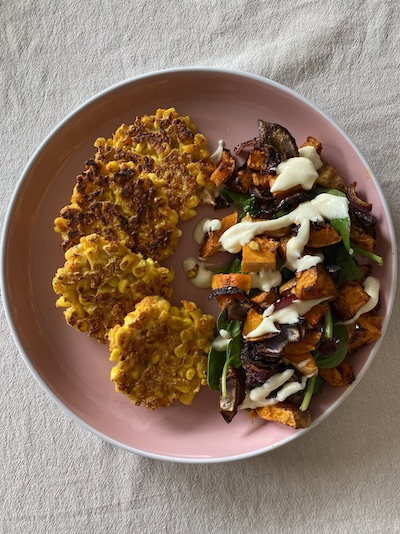As all my meals were vegetarian, I paid close attention to protein. Each meal contained between 16g and 24g of protein per serving which is an adequate amount. The sources of protein were good wholefood sources such as kidney beans and lentils. Each meal contained a quality source of carbohydrate, for example pumpkin or couscous and a source of fat in the form of dairy products (cheese, Greek yoghurt) which also increased the protein content of each meal.
Each recipe contained at least two types of vegetables; the corn and carrot fritters contained five different vegetables, which is excellent in terms of variety! These vegetables often formed the base of the recipes too, increasing the nutrient density and fibre content of my meals.
The sodium content of meals was high, averaging 1400mg per serving. The current recommendations for sodium intakes are no more than 2000mg per day.2 This may be a consideration for individuals who are limiting their sodium intake. The higher sodium content may be attributed to the prepacked spices and canned goods. My recommendation would be to avoid adding extra salt to the meals.
Each portion size was excellent, leaving me feeling very satisfied. In terms of the macronutrient profile, these meals are nutritionally balanced and get the tick of approval from me!

